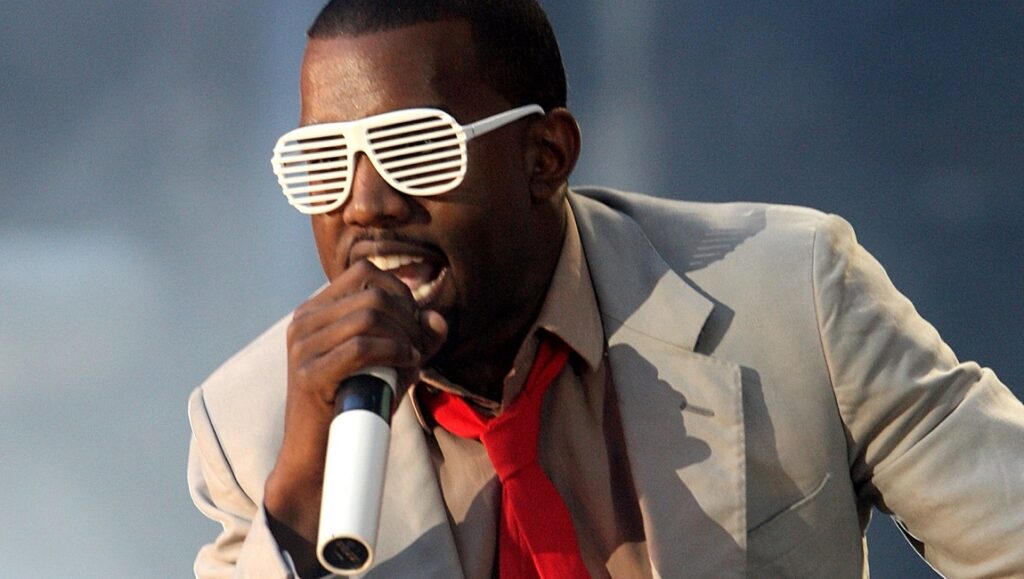Exemplified once more by the recent Donda rollout, Kanye’s productivity subsists off embattled energy, his “Soon as they like you make ’em unlike you” ethos perhaps the primary driving force of his continued success and betterment as an artist. Though many cherish the memory of the old Kanye and all they projected onto him, tumult and confrontation have always informed his process, with 2007’s Graduation coming at an uneasy resting place between his powerful condemnation of W. Bush on live TV in ‘05 and his also powerful condemnation of T. Swift’s VMA win in ‘09. That latter moment would establish the more dramatically antagonistic relationship between West and the media that carries on to this day, but in September of 2007 this tension had yet to boil over, and Graduation is reflective of this particular instance of uneasy agreement between West and the pop industry of the moment.
West had become a beloved figure in 2000s pop rap thanks to his debut The College Dropout, which sold him as a hipper version of that era’s conscious rappers, adept at narrative songwriting that embraced discussions of race and class without sacrificing pop appeal. In some ways, this iteration of West’s persona continues to haunt his work (and is, of course, partially the creation of the white music publications who covered him at the time) and has altered the way he chooses to engage with current events through his music, this discomfort with questions of image control already apparent by Graduation. In this way, the album became one of the first career resets of many, signaled by its conclusive title (which wisely closed the loop on the college theme reoccurring across the first two) and the iconic Takashi Murakami artwork depicting West’s bear analog rocketing out into the cosmos. Yet, for West in this moment, to subvert what had come before meant going even bigger, the amusing contradiction of Graduation being that it’s his most Top 40-ready, but also a spectacular reinvention.
With Graduation, West began his career-long project of reduction and expansion, paring back his language while maximizing his sound. Clearly conceived (and duly received) as a coming out for West as unabashed popstar, the album is pure anthem, or a series of them really, dismissing the continuity of his previous work in favor of immediacy. The songs on Graduation indulge in the optimism and good-natured arrogance that would characterize rap and pop music throughout the Obama presidency, then just on the horizon. They also convincingly assert West not just as popstar, but as icon, audaciously sampling the likes of Michael Jackson, Steely Dan, and Can while aligning himself with contemporary legends like Daft Punk on megahit “Stronger” (sort of dated at this point, but no less hyped) and T-Pain for “Good Life” (both songs with assists from Timbaland and Mike Dean). Though indeed West’s cleanest release to date (much is often made of the reportedly painstaking effort put into crafting each song, many of which were mixed countless times over), the erraticism that he often allows to dictate his current-day work is allowed some influence here with looser tracks like Wayne collab “Barry Bonds” and the Yasiin Bey-featuring “Drunk and Hot Girls” (a practically disrespectful use of the aforementioned Can sample, which makes it all the cooler), both of which gesture toward the more spontaneous, id-informed methodology of songwriting that has appealed to him most recently. Pieces of previous album Late Registration surface here and there (most apparent in the rap balladry of closers “Homecoming” and “Big Brother”), but it’s undeniable that West is here already looking way ahead, beginning the intensive, in-the-moment self-documentation of his celebrity that has come to be his work’s focus.
Part of Kicking the Canon – The Album Canon.


Comments are closed.